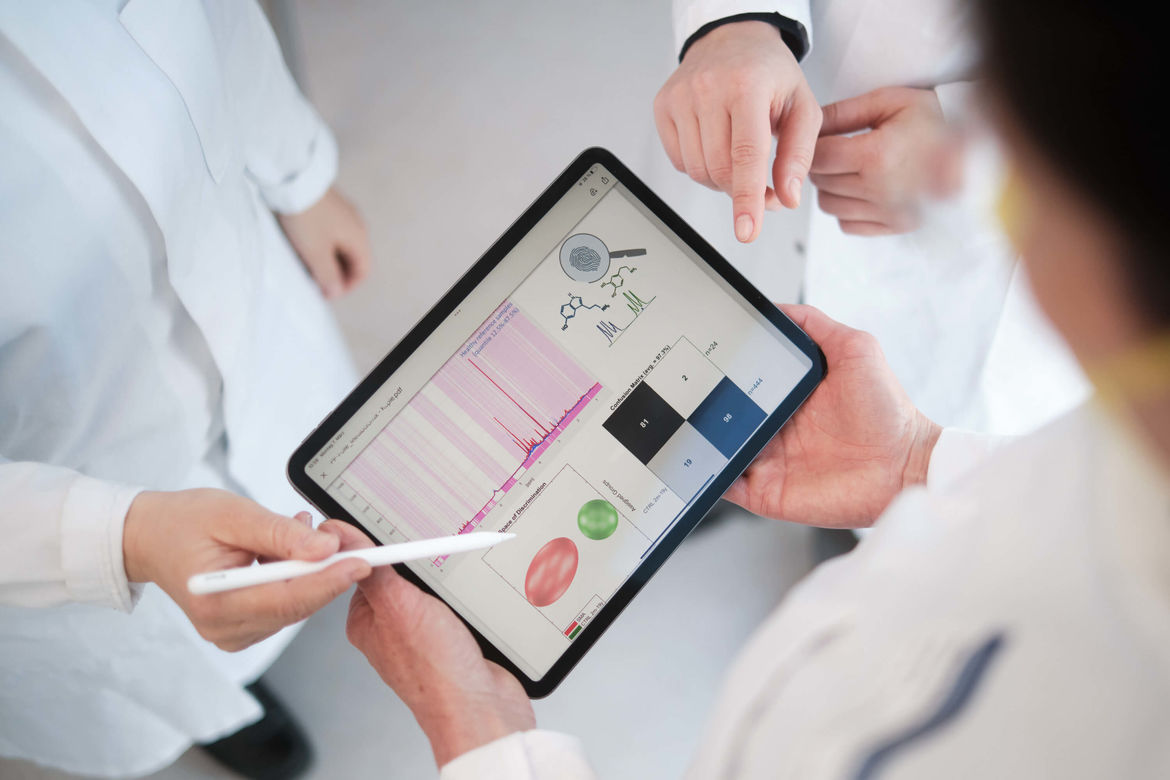Service
- We offer our expertise in developing collaborative academic trials (IITs, Investigator-Initiated Trials) using innovative analytical methods that allow:
- Evaluation of the activity of liver enzymes with microdosing of relevant marker substances (e.g. micro-midazolam to evaluate CYP3A4 activity) in drug-drug interactions
- Evaluation of the dose-exposure-response relationships using ultra-sensitive drug analytics
- Identification and evaluation of specific biochemical "fingerprints" for the phenotypic classification of a disease (diagnostic biomarkers/patterns) and for individual therapy monitoring: Prognostic and therapeutic biomarkers/patterns for drug (side) effects using 1H -NMR spectroscopy and other innovative laboratory methods.
- Development and elaboration of trial protocols with modern guideline-compliant study designs that are practicable in the pediatric setting as well as Informed Consent/Assent Forms in accordance with regulatory requirements.
- Planning and organization of the trial, if necessary together with our cooperation partners at the Heidelberg University Campus (e.g. the Coordination Center for Clinical Studies (KKS) Heidelberg) in the scope of project management, data management, statistics, regulatory affairs (competent regulatory authorities, Ethics Committees), eCRF structure (EDC MARVIN), pharmacovigilance, medical writing/reporting, study monitoring, quality management and assurance.
- Successful conduct of the clinical trial in the paedKliPS.
Background, mission
In addition to enabling rapid translation of innovative drugs into the routine care of children and adolescents through clinical trials, we see our mission in the development and implementation of specific analytical methods and technologies representing a valuable decision-making support for everyday pharmacotherapeutic questions. These methods and technologies should allow for a reliable prediction or selection of the most effective and safe individual drug dose. Especially in the case of polypharmacy, this would help to minimize the risk of potential (serious) drug interactions or avoid them as much as possible. Such decision-making support tools are particularly essential for pediatric and adolescent medicine, since the complexity increases due to age-related physiological differences in the pharmacokinetics and pharmacodynamics of the developing organism as well as due to the changing activity of the drug metabolizing enzymes.
Are you interested in a cooperation?
We are looking forward to your contact at:
Dr. med. Kristine Chobanyan-Jürgens
kristine.chobanyan-juergens(at)med.uni-heidelberg.de
und
Dr. med. Andreas Ziegler, M.sc.
andreas.ziegler(at)med.uni-heidelberg.de


